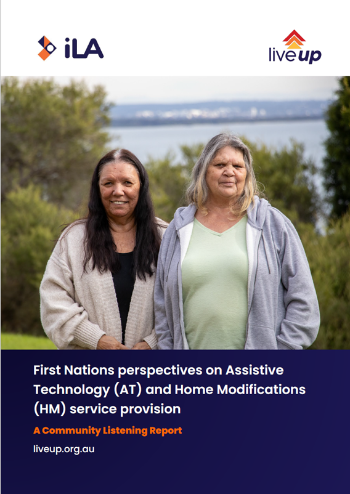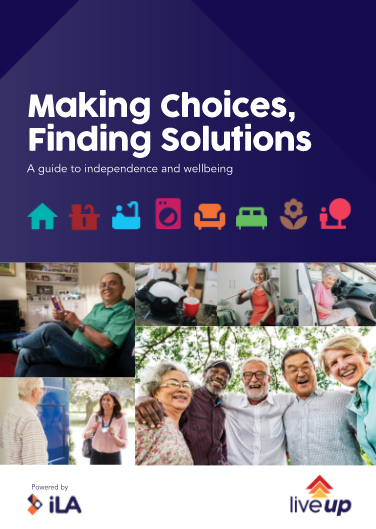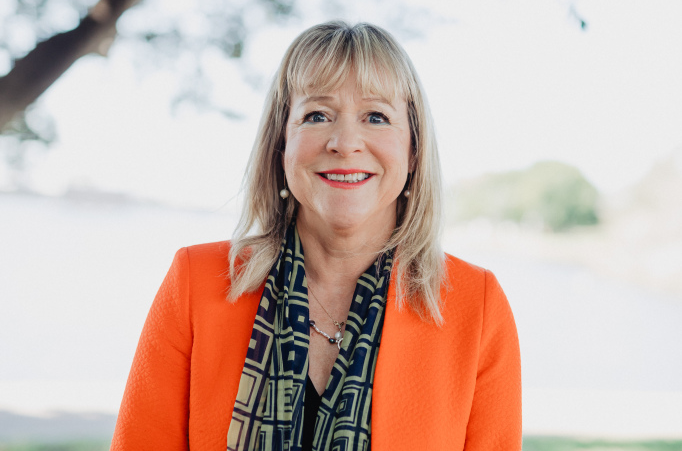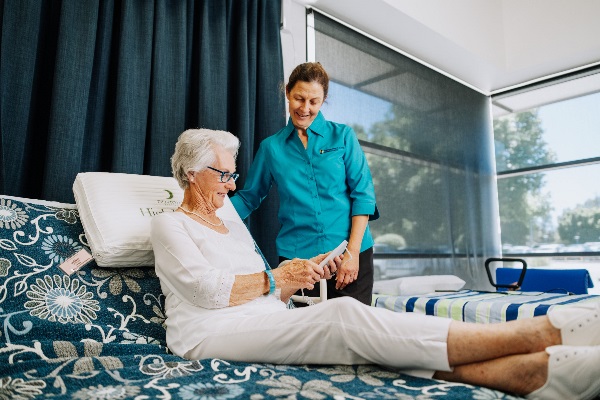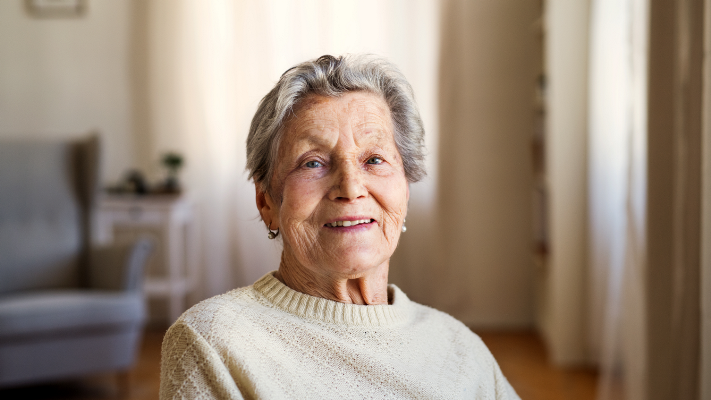Resources & Research
We conduct research and embrace a co-design methodology to develop, and contribute to, industry-leading resources that encourage informed decision-making.
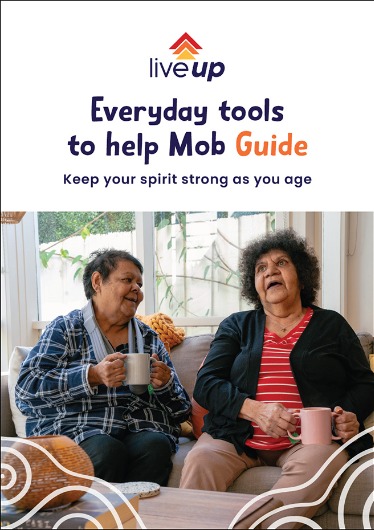
Everyday tools to help Mob Guide
The Everyday tools to help Mob Guide supports Elders and their families to explore low-risk assistive products, or tools, that can support their independence. It enhances access to culturally safe resources for First Nations communities in reflection of the new Aged Care Act and Elders rights to exercise control and be informed in a way they understand.
These resources were created by LiveUp in partnership with Little Rocket, Victorian Aboriginal Health Service (VAHS), Victorian Aboriginal Community Controlled Health Organisation, and an Elder working group.
Everyday tools to help Mob Guide reflects iLA’s deep commitment to inclusivity and the need for Aboriginal and Torres Strait Islander knowledge and perspectives to be fully recognised and integrated into Wellness and Reablement policy and practice.
LiveUp Featured in International Think Tank Report
Our national healthy ageing initiative LiveUp has been highlighted in the International Think Tank report, Ageing Well with Person-Centred Technology, led by AAATE and GAATO as part of the SEURO Project.
This Think Tank brought together global experts to explore how older people and their care networks can better adopt and benefit from tech-enabled assistive solutions. Discussions focused on the importance of access to equal opportunities and technology, and the challenges of the “digital revolution” enhancing existing inequalities if inclusivity is not prioritised.
iLA’s Healthy Ageing and Reablement Lead, Eleanor Kennett-Smith, and Growth and Innovation Program Lead, Vanessa Langenberg, contributed their insights to these important conversations by sharing LiveUp’s research with First Nations peoples and the need for a culturally safe approach to Assistive Technology (AT) provision.
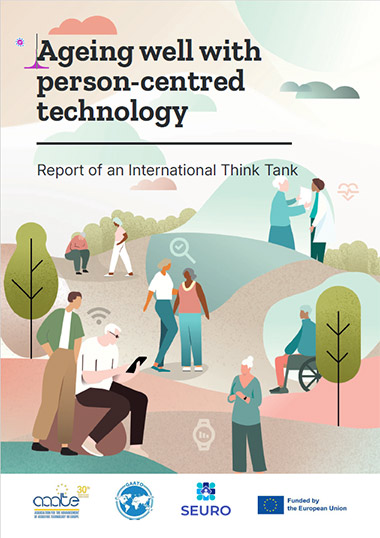
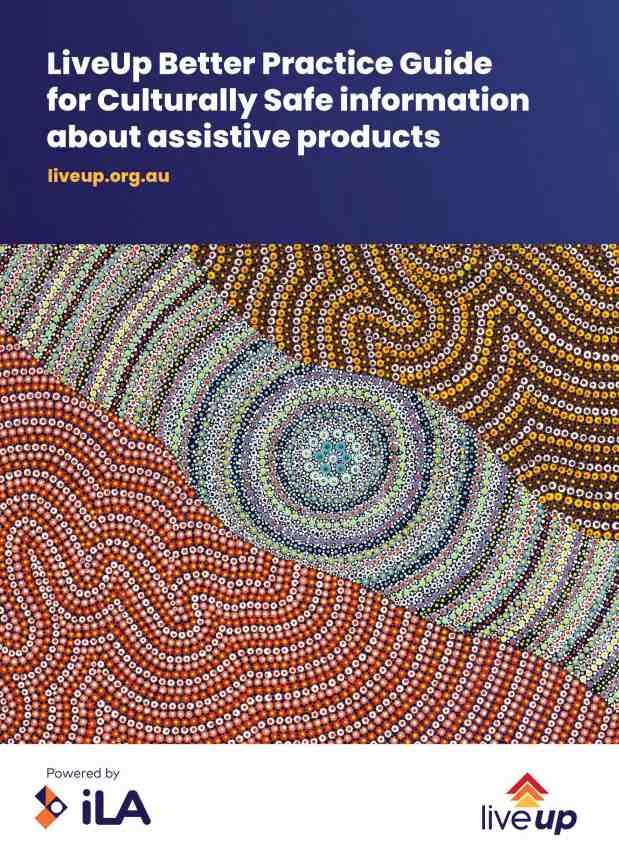
Read or download here:
LiveUp Better Practice Guide for Culturally Safe information about assistive products
LiveUp Better Practice Guide for Culturally Safe information about assistive products
First Nations - Community Listening Report
First Nations perspectives on Assistive Technology (AT) and Home Modifications (HM) service provision: A Community Listening Report
This Community Listening Report aims to help policymakers and industry practitioners create culturally safe Assistive Technology (AT) and Home Modifications (HM) services for First Nations people, and all Australians.
It focuses on research into First Nations experiences with accessing assistive products under the Australian Aged Care Act 1997, identifying actions to address logistical, cultural, and systemic barriers in loan schemes, subsidised products, assessments, and wrap-around assistive services.
While the Australian Aged Care Act 2024 shows promise in tackling some barriers, this report emphasises the importance of prioritising First Nations voices in AT policy and practice, and building on their community strengths to overcome challenges.
Making Choices, Finding Solutions Guide
Your guide to assistive equipment and home modification options for safety, independence, and wellbeing.
iLA created the Making Choices, Finding Solutions Guide in partnership with the WA Home and Community Care Program.
This guide has been developed to assist you in finding simple assistive equipment, technology, and basic home modification solutions available in local stores and online.
It contains a range of useful tips and advice to help you better manage everyday tasks and common frustrations.
Reablement in Long-Term Care for Older People |
Hilary O'Connell is the Principal Advisor for Healthy Ageing at iLA. She is one of the driving forces behind the development of Keep Able and LiveUp and is excited to be co-author of Reablement in Long-term care for Older People.
Her 40-year career as an occupational therapist has encompassed work as a clinician, manager and project leader across the disability and aged care sectors, working within several clinical and community settings where her community care knowledge has enabled Hilary to pioneer the implementation of a number of major reform projects. Her passion throughout is with reablement and wellness focused service models in community care.
Hilary has presented extensively on wellness and reablement and has co-authored peer reviewed papers on the ‘Home Independence Program’ with Professor Gill Lewin and on ‘Falls Prevention in Community Care’ with Dr Elissa Burton. She is very proud to be a co-author on the newly released book ‘Reablement in Long Term Care for Older People’.
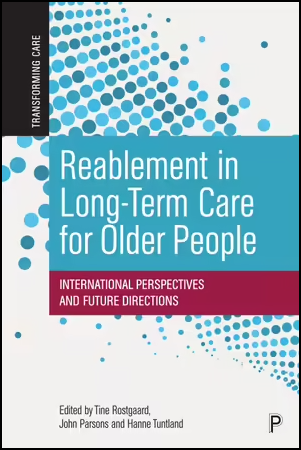
|
Sector Support & Development Research:
WA HACC Home Modifications and Assistive Technology Project 2013 - 2018
In July 2013, the Independent Living Centre WA (now called Indigo) commenced a new project funded by the WA Home and Community Care (HACC) program in home modifications and assistive technology. The project aimed to further develop a sustainable service model
that would enable HACC Program clients to access and receive home modifications and assistive technology (devices and equipment) that support independence and wellbeing through the WA Assessment Framework.
The project stemmed from the 'Commonwealth reform agenda Living Longer Living Better report' which identified home modifications as an area of development and reform that will support and facilitate independent living at home for older people.
With recognition that home modifications
and assistive technology can support clients to maintain their independence and wellbeing, HACC committed to this project to explore what would support growth in this area.
Read the project reports below:
- HACC HM & AT Project Update 2017
- HACC HM & AT Project Update 2016
- HACC HM & AT Project Update 2015
- HACC HM & AT Project Update 2013
- WA HACC HM and AT Information Sheet
Scoping Review on Best Practice for Home Modifications in Service Delivery
To support the development of a sustainable service delivery model that guides the provision of home modifications and equipment for WA Home and Community Care (HACC) clients, a Scoping Review was conducted by the Independent Living Centre WA (now called Indigo) in partnership with the Curtin University School of Occupational Therapy and Social Work to explore the key factors that influence best practice in home modification service delivery.
Read the 'Full Report of Findings', and the 'At a Glance' document below:
- At a Glance - Home Mods Scoping Review
- Full Report - Scoping Review on Best Practice for Home Mods Service Delivery
Falls Prevention Research
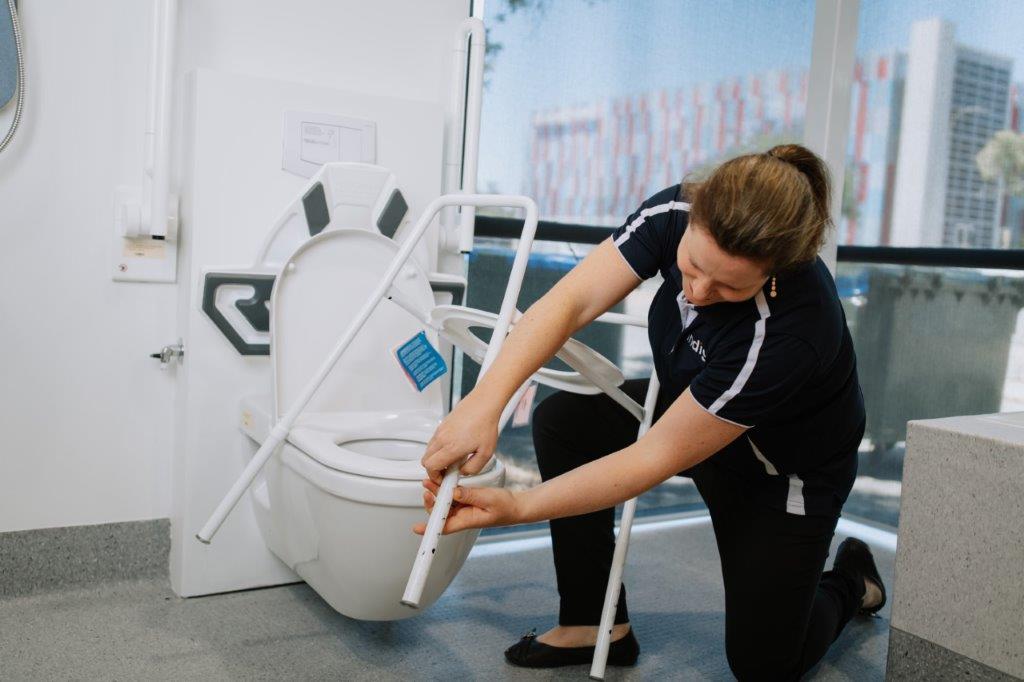
SSD Partnerships
Reablement
Falls Prevention
- Dr Elissa Burton, Curtin University School of Physiotherapy and Exercise Science
Assistive Technology and Home Modifications
- Dr Natasha Layton Deakin University, Melbourne
- Dr Courtenay Harris, Curtin University, School of Occupational Therapy and Social Work

 Translate
Translate